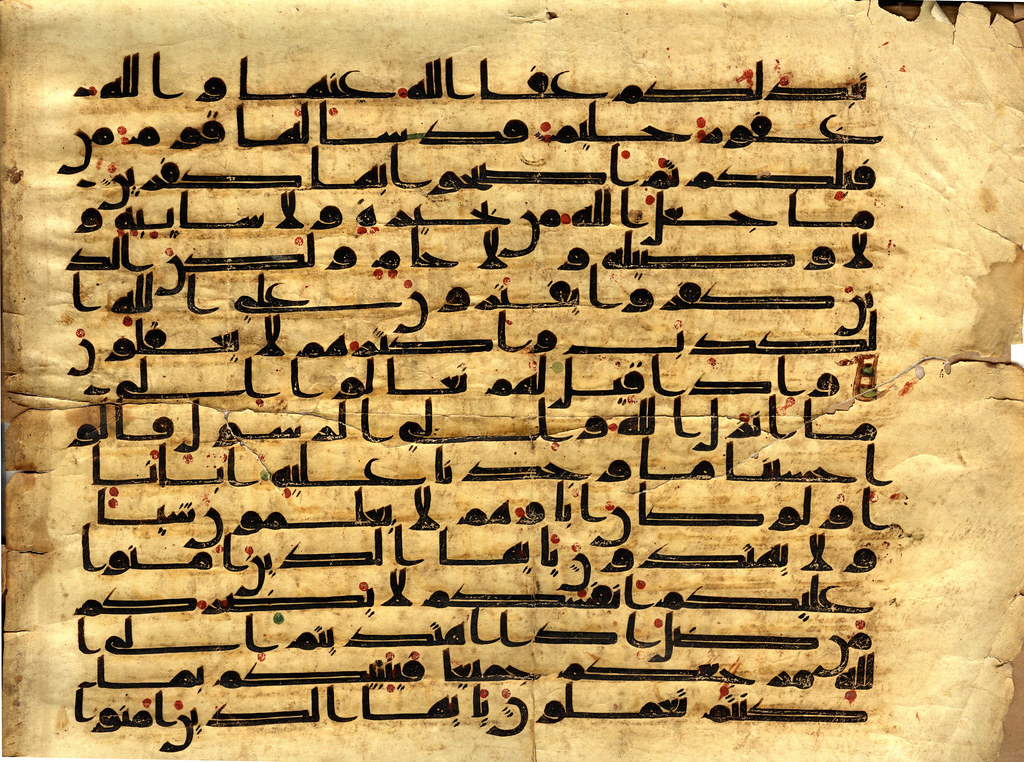Can Religious Texts Be Used as Historical Evidence?
بسم الله الرحمن الرحيم
In a recent Reddit thread, someone asked about the practice of infanticide. In response, I said the following:
In pre-Islamic Arabia this was frequently practiced against girls specifically. The origin of the practice is said to be that it was shameful for an enemy tribe to raid you and steal your daughter and use her as a concubine. The avoid the shame of having this happen, many men would simply bury their daughters alive before they became attached. For if a man were to grow attached and allow his daughter to grow, then one day he may not be able to live down the shame of having his daughter captured and made into a concubine. This then spilled over into a general shame of having daughters in general, and a general preference for males in general.
Another reason for infanticide was a fear of poverty.
Infanticide was stopped by the Prophet Muhammad (pbuh) in the early 600s. The disdain for infanticide is therefore not peculiar to modernity.
In response to this, a moderator claiming to be a trained historian responded, “That feels very Great Man history.”
My response to this was as follows:
While Carlisle may have exaggerated the role of great men, many historians today tend to exaggerate in the opposite direction, following a reductionist tendancy. Great men actually did exist and actually did massively influence society, religious figures perhaps being at the top of that list, as entire populations model their moral compass and worldview based on the teachings of such men.
That said, the direct evidence for this is found in the Quran.
وَلَا تَقْتُلُوٓا۟ أَوْلَـٰدَكُمْ خَشْيَةَ إِمْلَـٰقٍ ۖ نَّحْنُ نَرْزُقُهُمْ وَإِيَّاكُمْ ۚ إِنَّ قَتْلَهُمْ كَانَ خِطْـًٔا كَبِيرًا
And do not kill your children for fear of poverty. We provide for them and for you. Indeed, their killing is ever a great sin.
— Saheeh International 17:31
وَإِذَا ٱلْمَوْءُۥدَةُ سُئِلَتْ
And when the girl [who was] buried alive is asked
بِأَىِّ ذَنۢبٍ قُتِلَتْ
For what sin she was killed
— Saheeh International (81:8-9)
We have an abundance of references to the practice also in historical accounts as well as hadith literature. It was explicitly forbidden by all schools of Islamic law and is considered an act of murder.
His response to this was, “Sorry, but religious texts such as the Quran are not independently valid historical evidence.”
This leads me to the present topic. Can religious texts be used as historical evidence?
First of all, we have to realize that history has several conceptions. The currently popular one that my interlocutor was referring to was a purely secular understanding of past events using the critical method. The starting point of this method is to assume that no supernatural beings are knowable, and no supernatural events have occured. From there, they attempt to suss out causes and effects, trends, correlations, and sequences of events in hisory.
However, what reason do we have to accept such an assumption? If we have independent reasons for thinking God, the angels, jinn, etc. all exist, then this starting assumption would be false, and would lead to false conclusions.
But here I want to examine a separate question. Even under the philosophical agnostic understanding of history, is it actually the case that religious texts can tell you *nothing* about history?
It depends on *what* you’re trying to prove.
For instance, if we’re trying to show based on the gospels that Jesus rose from the dead, then an agnostic historian has good reasons to be skeptical. The gospels were written by people partial to the idea who are basing their theology on it. Furthermore, it would be highly unusual and miraculous, meaning that the prior probability is already astronomically low.
But let’s say we wanted to know what early Christian practice was like. Guess what? Acts of the Apostles is actually a *fantastic* historical source to prove that. We know from there that James and Paul were disputing about the status of the Law in Christianity.
Why on earth would a historian ignore that, or have reason to think that the entire thing is made up?
They don’t. Any historian of Christianity worth his salt will use the Bible to argue for his interpretation of history.
Likewise, we can date the Quran to 7th century Arabia. We know the Quran contains a massive polemic against polytheists for example. We can conclude, therefore, that polytheists actually did exist in the Arabian peninsula at the time of the writing of the Quran.
Likewise, we can conclude based on the verses I quoted above that polytheists were killing their children, and that Islam prohibited this. We also have additional routes of evidence; the early fiqh texts and positions of various schools, the hadith tradition, and Islamicate historians. All of these add up, in addition to the lack of counter-evidence, to give us certainty that this practice existed.
So what’s the takeaway from all of this?
Some atheists are so brainwashed and vehemently anti-religious that they develop a twitch or immediate disgust reaction towards all things religious. This disgust reaction acts as a cognitive bias inhibiting the function of basic reason.


